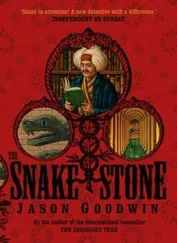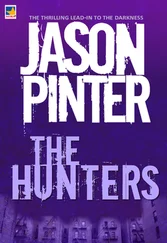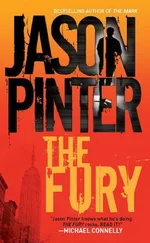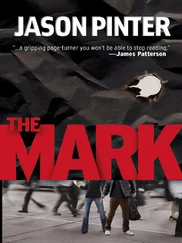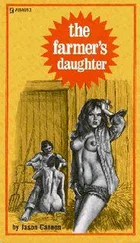Those characteristics eventually came to the attention of the England U19 selectors and I was called up for the U19 game against Italy at New Brighton in 1986. I played with guys like Paddy Dunston, Paul Manley, Howard Lamb, Rupert Moon and Paul Hull. It was a great honour and we were a good side. The only match we lost that season was against France and even that game was close. When we played Wales, the young tight head was John Davies – a few years later he told me that he remembered me from that match as he only weighed about 14 stone in those days, so wasn’t too hard to toss around.
The England Colts experience taught me discipline, but I relied on the Barking first team for my lessons in ‘street rugby’ and how to stay strong. After finishing my year in the Colts, I slipped back into the first team at Barking and immediately took up my position in the front row. Along with playing in the first team came various rituals, including the tradition of throwing new boys out of the bus on the way back when they made their first away trip – you then had to walk back to the clubhouse naked. I was thrown off the bus with this other guy who was also making his debut. We were a mile from the clubhouse, completely naked and in about four inches of snow. The two of us tumbled out of the bus and ran to hide behind a tree. I shouted to the guys on the bus to at least let me have my shoes – I wasn’t bothered about the fact that I was stark naked, but was just worried about having to run through the snow barefoot. Our teammates on the bus were naturally having none of it and they turned and drove off, waving to us as we cowered behind the tree, covering ourselves with our hands.
I asked the guy who was with me what he was going to do. He said that he only lived a mile to the south of the point where we’d been dropped off, so he would run back home, get changed and meet me at the club. I lived miles away and decided I’d better head for the clubhouse which was about a mile to the north of us, so off we both went in opposite directions. I was running between parked cars, hiding behind them until it was clear, then running to the next car, hoping that no one would see me. I thought I was doing quite well until a police car pulled up alongside me, an officer got out, covered me with his jacket and told me to get into the back of the car. Once I was inside, he told me that a little old lady had rung 999 when she saw a naked man running past her window. The copper then radioed back to the station and told them that I’d been picked up, whereupon he looked at me and said, ‘You’re fit, aren’t you?’
‘Yes,’ I said. ‘I’m quite fit. I play a lot of rugby.’
‘What position?’ asked the copper.
‘Prop,’ I replied.
‘Blimey, you’re fit for a prop. Bloody fit,’ he added, looking impressed. Then he looked at his watch. ‘You were spotted in Barking Park Road five minutes ago. That’s a mile away. You’ve just run a five-minute mile with no clothes on, no shoes and in four inches of snow.’
It was at this point that I realized that the little old lady had seen the other guy who’d gone running in the opposite direction. It was a shame to have to tell the copper as he was so impressed with my fitness, but I did tell him in the end. He laughed, swung the car round and we went off to the police station. By the time we got back there, they’d picked up the other guy and took us both back to the club. They marched us into the club and said, ‘Does anyone know where these boys’ clothes are?’ All the guys in the clubhouse just looked up at the ceiling. The police prodded the ceiling with their truncheons, one of the tiles shifted and down fell all our clothes, so we got dressed and bought the coppers a beer.
The fun side of rugby still appeals to me and although the sport has become more professional while I’ve been involved, I still think that the social side of the game is important – rugby won’t be rugby the day that opponents don’t go out for a drink with one another after playing. The sport will have changed for the worse when guys who battle like hell on the pitch can’t socialize off it. It’s different when you’re playing for the Lions or England so it’s important to keep in touch with the club game. At least it is for me. And I know I’d be a poorer person without the guys at Barking.
Barking was a great club for me to start my rugby career in. It gave me everything I wanted, and more. But in the end, by the time I was 19 years old and had experienced two hard years in the first team, both I, and all my mates at Barking, knew that it was time for me to move on.
The guys at Barking were very good about helping me to find the best move after it became clear that it was time for me to leave, just as they had protected me the year previously and had urged me not to leave too soon.
I think that many people at the club were concerned about me leaving too soon and being put in the U21s, where I’d be likely to learn less about the real world of adult propping than I would at Barking where at least I was gaining invaluable experience against old, wizened, wily, gnarled props. Playing in the first team at Barking gave me a streetwise edge which would help me to cope later, when I came up against experienced internationals.
So I was 19 before I decided that it was time to move on. I’d already played a couple of U21 games for Saracens on an invitation basis, and I liked the club. They were in the second rather than the first, but I still liked the atmosphere and the people down there. The only other club that I had thought about joining was Wasps, but the England props Jeff Probyn and Paul Rendall were well established there, so I wouldn’t have a chance of getting into the first team until they retired.
I liked Saracens because there was a good chance of me making it into the first team quickly and, although it was more serious than Barking, there was still an element of fun about the club which appealed to me. It was then a small club with lots of people who’d been around for years, so there was a great community spirit and a friendliness about the place which reminded me of Barking. I loved it and everything it stood for. It was a good, honest club full of hard-working people. There was nothing glamorous about it but there was a lovely atmosphere down there, and a feeling of everyone pulling in the same direction and working towards the same goals. Bramley Road was a great little stadium – even though the locals used to walk their dogs across the pitch during the day, so you’d be knee deep in dog shit during training sessions.
Saracens first approached me when they saw me playing county rugby and they invited me along. After the introductory couple of matches for the U21s, I took them up on the offer of a place and headed down to Bramley Road. The timing of my arrival was extremely lucky for me, but not for the regular prop, a guy called Richie Andrews, who went off to get married to Di – and I stepped in to fill in for him in his absence.
While he was saying ‘I do’, I sneaked in and stole his place; while he was on honeymoon, I perfected the role; and by the time he got back, I was a permanent fixture in the team. Luckily, we’re the best of mates now, but he can’t have been too pleased at the time.
In my first game for Sarries firsts, against Bridgend, Tony Robinson, known as Robbo, was playing tight head and was completely mauled by his opposite number. I remember afterwards, Tony Russ, the coach, said to him, ‘You useless lump, you were beaten by a complete nobody.’ Robbo was really embarrassed at the time, but was relieved later to discover that the ‘nobody’ turned out to be Mike Griffiths who was selected to tour with the Lions at the end of the season. Robbo took great pride in reminding Tony of his words when the Lions squad was announced.
Читать дальше


